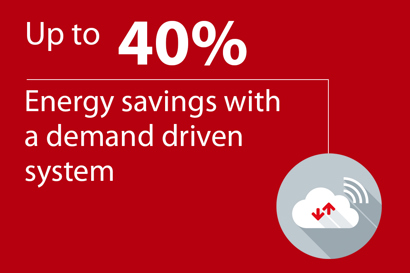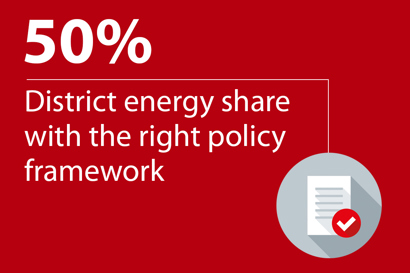
Sector integration
Heating and cooling accounts for half of the EU’s energy consumption and is currently 75% fossil-fuel based. To succeed with the energy transition in Europe, therefore, decarbonizing our heating and cooling supply is essential. Energy efficiency and the smart integration of renewable energy through sector coupling, is the cost-effective pathway for achieving our goals.
A new report from Aalborg University in Denmark sets the vision and concrete pathway for decarbonizing the European heating and cooling sector by 2050, based on the significant potential of district energy and energy efficiency in Europe.
Download summary
The report by Aalborg University was initiated by Danfoss and Engie.
Download the full version here.
Five key takeaways from the report
Towards a decarbonized heating and cooling sector

Unleash the potential of district energy

Energy efficiency and digitalization: the enablers of a cost-effective energy transition

The policy framework - key to this transition




